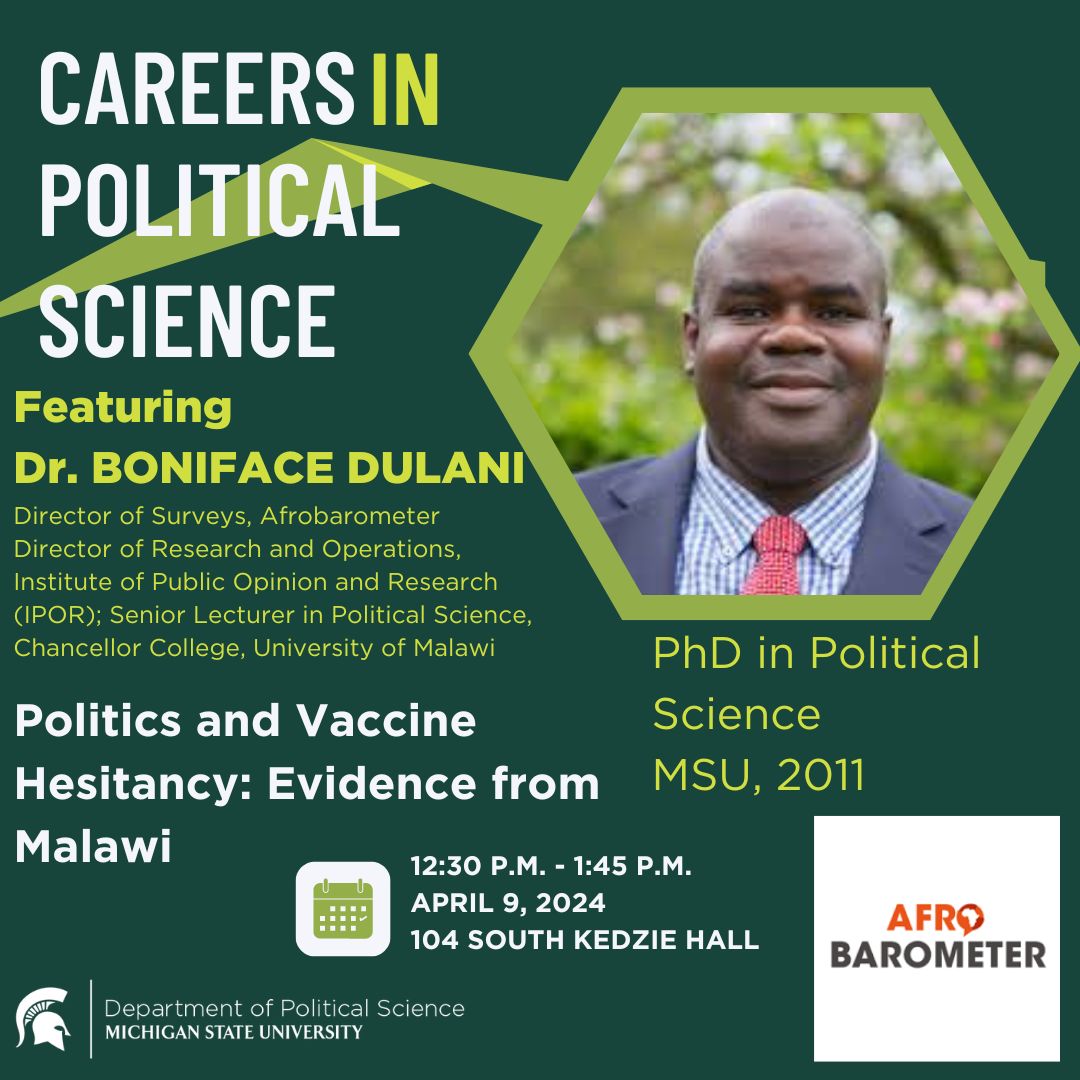Politics and Vaccine Hesitancy: Evidence from Malawi
Tue, April 9, 2024 11:30 AM at 104 S. Kedzie Hall
Dr. Boniface Dulani, Director of Surveys, Afrobarometer; Director of Research and Operations, Institute of Public Opinion and Research (IPOR); Senior Lecturer in Political Science, Chancellor College, University of Malawi; and most importantly, proud alum of the MSU Political Science Department, will discuss his research.
Abstract: As states and societies seek solutions to stem the tide of the coronavirus pandemic, one key variable has been the willingness of ordinary people to get vaccinated. In this paper, we examine how politics influences individuals’ acceptance of COVID-19 vaccines. More specifically, we contribute to the growing political science literature on the role of trust in shaping response to health crises by studying how partisanship relates to trust and how trust – in both domestic officials and international agencies – shapes vaccine uptake and hesitancy. Our study draws on original survey data from Malawi, a country that relies significantly on foreign aid for health and where citizens have relatively low trust in political leaders. While national-level politics in Malawi are competitive, the major political parties have not overtly politicized the COVID-19 pandemic. In a phone survey conducted in late 2021, we asked adult Malawians (N=3,234) about their attitudes toward COVID-19 vaccines and their perceptions of vaccine efficacy and risk. We also measured political affiliation, trust in government, and trust in international actors. A subset of these respondents were also interviewed in April and May of 2020 about trust and political affiliation, allowing us to examine these variables over time. We find strong evidence that political affiliations – in particular, being a partisan of the party that lost power in the July 2020 presidential election or a partisan of the party that gained it – significantly affect trust in government. Power losers experienced substantial drops in trust while power gainers experienced substantial gains. Losing or winning power did not, however, affect trust in the World Health Organization (WHO). Both forms of trust in turn shape vaccine acceptance. Our analysis suggests that international organizations may be able to counterbalance cycles in political trust generated by elections and in so doing improve uptake of public health measures.


